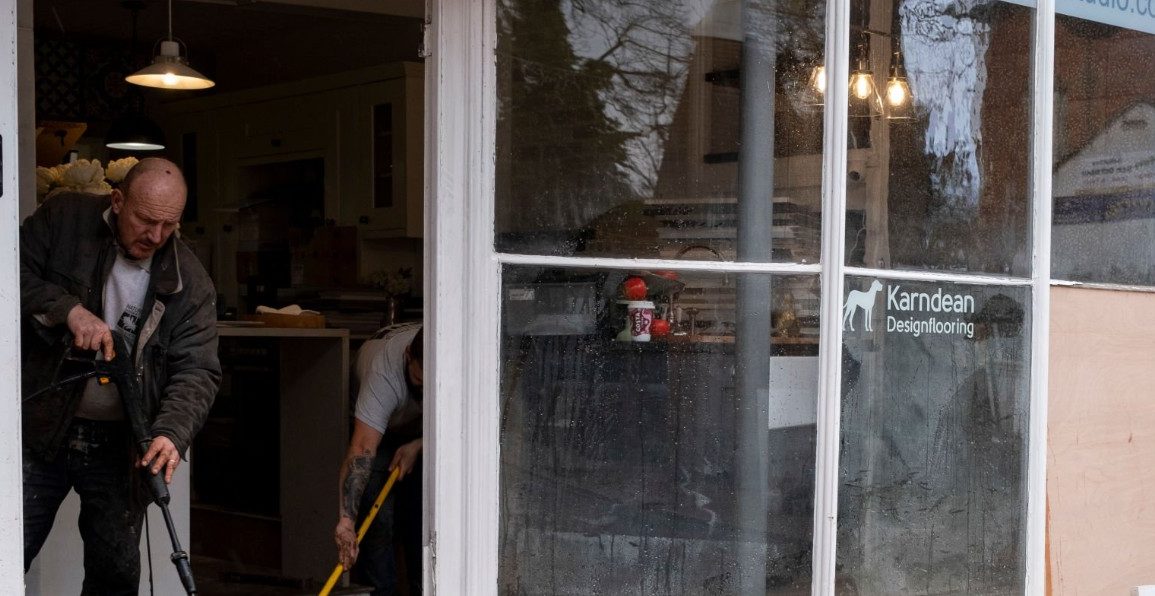Storm Bert has wreaked havoc across Wales and England, flooding more than 500 homes and businesses, as severe weather warnings continue for southern Britain.
In Wales, the impact has been particularly severe, with First Minister Eluned Morgan reporting that 400 homes, along with businesses and infrastructure, were damaged.
Additionally, there are concerns about a lack of timely warnings, as some residents only found out about the impending flood by neighbors knocking on their doors.
Investigations are underway to understand why certain households did not receive adequate flood alerts.
The flooding is compounded by Storm Conall, which has been named by the Dutch Weather Service (KNMI), bringing more rainfall and strong winds across southern England.
As the storm moves through, the UK Met Office has issued a yellow severe weather warning for parts of London, Essex, Kent, and surrounding areas, warning that the impacts could be significant though less severe than during the weekend.
This severe weather has highlighted the ongoing challenges posed by extreme rainfall, which is becoming more frequent and intense due to climate change.

The Met Office has issued nearly 100 flood warnings, including one severe warning for the River Nene at Billing Aquadrome in Northamptonshire, indicating a significant danger to life.
The flooding comes on the heels of Storm Dennis, which caused severe damage in 2020.
Following that event, the Welsh government invested £300 million in flood prevention measures, which helped protect some areas this time.
However, some politicians have questioned whether enough is being done, especially in light of more extreme weather events.
In response to the ongoing crisis, the Welsh government is offering grants to affected households, including £500 for households with insurance and £1,000 for those without.
Despite the efforts, it is estimated that the cost of making all 2,000 coal tips in Wales safe could reach up to £600 million.
The First Minister acknowledged the need for further funding to tackle this long-term safety issue, stating that it would take up to 15 years to address.
As southern Britain braces for more rain, the threat of flooding remains high, and the need for effective warning systems is more urgent than ever.

